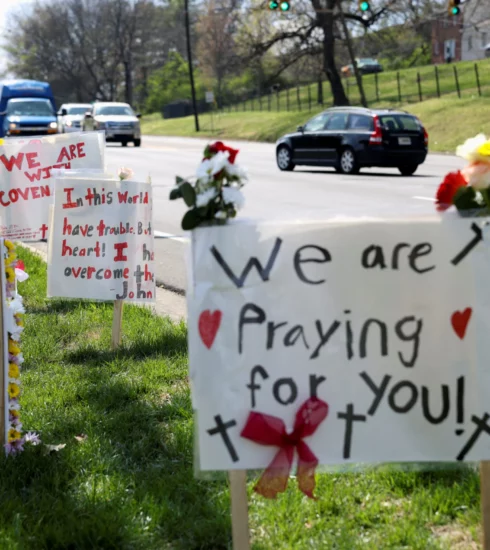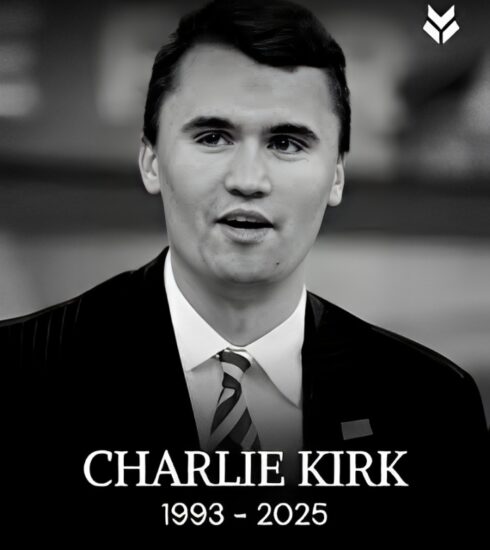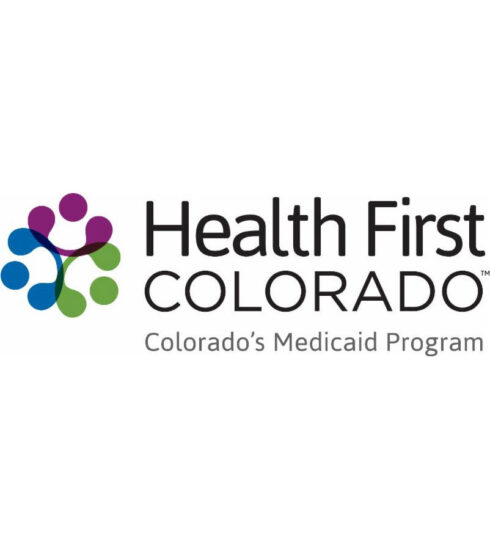Many caused Elijah McClain’s death | Pius Kamau
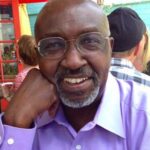
Pius Kamau
This story was first published by The Denver Gazette on 21 Jan 2024
Some tragedies affect us more profoundly than others. Elijah McClain’s death at the hands of police bothers me enormously because of its senselessness. After many months and with the cops’ obscene texting in mind, I often wonder what they say to each other now?
Previously, I contrasted the results of two paramedic groups’ work. We summoned paramedics to help us with a jogger whose heart had stopped. Our jogger was saved. I compared them to paramedics called in by cops to help “control” Elijah McClain. I inferred that McClain’s death was caused by ketamine injection. But now I wonder if his death wasn’t more complicated, involving not just the paramedics and the cops but also the 911 callers. Nonetheless, it is to the cops, who had absolutely no cause or reason to accost or subdue McClain, that the greatest responsibility lies.
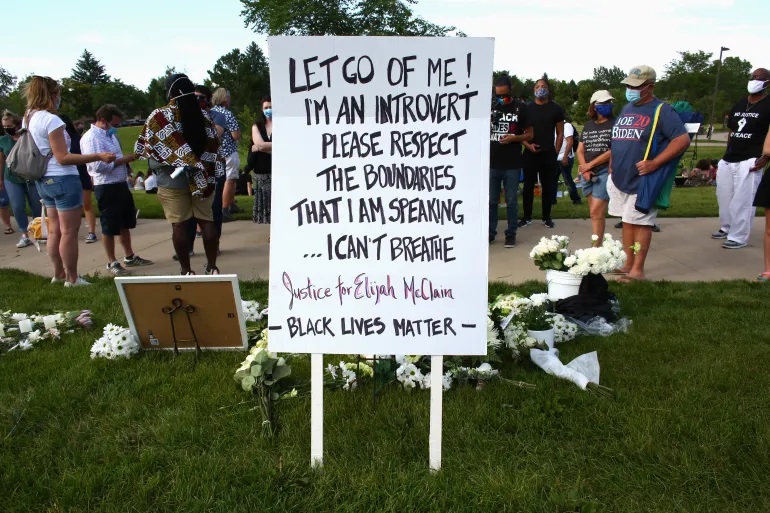
A sign with some of Elijah McClain’s last words at a candlelight vigil for him during a protest against racial inequality in the US state of Colorado in 2020 Credit:Kevin Mohatt/Reuters]
Still, the sequence of events is important. McClain’s 911 call came from a convenience store where he’d bought iced tea. The 911 dispatcher, Debra Furler, entered, “suspicious person” into a computer system that police officers and dispatchers see. The subject was not a danger to himself or to others, she said. But it was from that call, two officers went to deal with the “suspicious person” — Elijah McClain. “Assault on police officer,” would later be added to the entry by police Capt. Stephen Redfearn.
It’s unclear if most 911 dispatchers are fully aware that many 911 calls don’t always end up helping. About 240 million calls are made each year in America; most aren’t emergencies. The public should know that far too many 911 calls lead to dire consequences, sometimes including death, to themselves, or loved ones.
The Washington Post database shows 9,260 people have been killed by police since 2015. A disproportionate share were Black. It’s not clear how many resulted from 911 calls.
The Academy of Criminal Justice Sciences studied 4.3 million calls, finding that 16.8% were traffic related; 16.2% were “disorder,” 12.8% were about suspicion that crime might be committed or it had happened; 6.4% calls were for violent incidents, and the least of all — 1.65% for mental health incidents. Police responded to a large number of calls, like McClain’s, that they’re poorly trained and unequipped to manage.
Because of inherent suspicion and animosity, American policing in certain neighborhoods is risky. Reduction of contact between Blacks and White police would be ideal but is unlikely to occur any time soon. Certainly for McClain, the report of “suspicious person” resulted in a deadly confrontation with two and then four very enthusiastic cops.
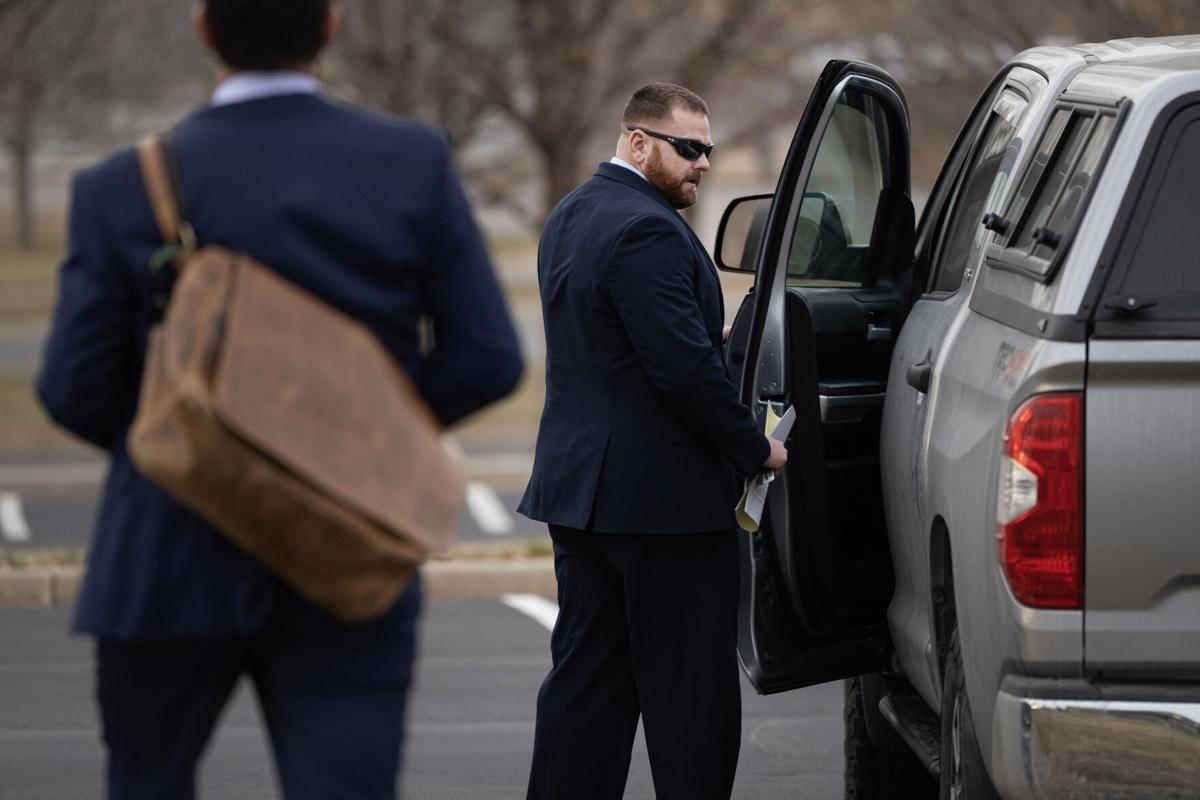
Former Aurora officer Randy Roedema gets in his truck after leaving the courthouse following being sentenced in his role in the 2019 death of Elijah McClain at the Adams County Courthouse in Brighton. Credit-The Denver Gazzette
What comes across upon analyzing police confrontations with Black people is the cops’ snap-judgment response, most often violent and deadly as happened to McClain. One can only surmise that a certain mental reaction is triggered once cops encounter Black people. I don’t know what it is but suspect it’s a brew of fear, suspicion and hatred.
To watch George Floyd being killed, and to imagine McClain amid the slow dimming of his life, is to wonder about the darkness and cruelty of some human hearts.
As in many professions and disciplines, good training and responsible supervision are necessary for a better police force.
It is hard to say if McClain would have survived the aggressive police onslaught. An asthmatic youth, taken down with several carotid control holds, handcuffed, vomiting and probably aspirating his vomit would quickly asphyxiate. He was doomed.
The paramedics’ mistake was to bow to the cops’ demand that ketamine be given. Police orders are given to be obeyed. As someone pointed out, rare is the time when health care providers in health care settings are punished for similar complications. There must be a separation between law enforcement and paramedics, who need more “protection.”
The paramedics’ shortcoming was not doing a quick evaluation of McClain and not considering him as a patient who needed care and not being controlled. For these two paramedics, I feel we should have been more lenient. In my opinion their employers gave them an impossible task, especially if they were aware that over 900 ketamine injections by paramedics had resulted in 17% complications. Do they bear responsibility? I wonder.
It is hard to categorically say how they should have been treated by the court. Their misfortune was to meet “men of action,” which was tragic for McClain and for their professional lives and future.
Pius Kamau, M.D., a retired general surgeon, is president of the Aurora-based Africa America Higher Education Partnerships (AAHEP); co-founder of the Africa Enterprise Group, and an activist for minority students’ STEM education. He is a National Public Radio commentator, a Huffington Post blogger, a past columnist for Denver dailies, and is featured on the podcast, “Never Again.”



